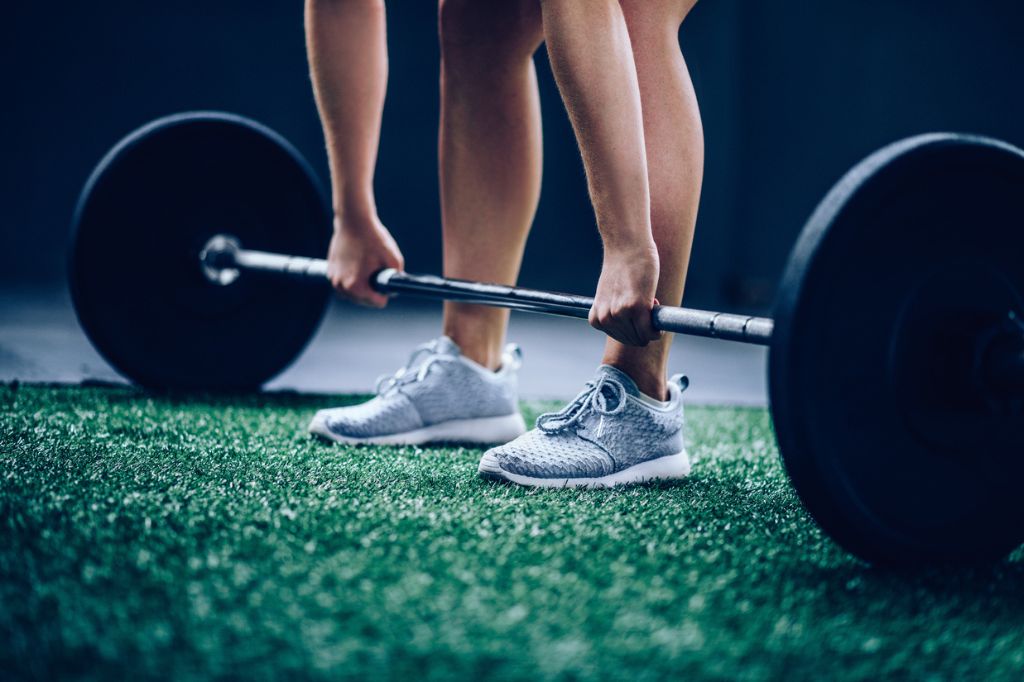
Weightlifting can be a fantastic way to build strength, improve fitness, and enhance overall health, but using the wrong equipment — especially shoes — can increase the risk of injury. At the Orthopedic Specialty Institute (OSI), we understand the importance of injury prevention and how proper footwear plays a crucial role in keeping your body safe and stable during weightlifting exercises.
Why Weightlifting Shoes Matter
When it comes to weightlifting, your feet serve as the foundation for your body’s stability and balance. Wearing shoes specifically designed for weightlifting can:
- Improve posture and form during lifts
- Increase stability under heavy loads
- Enhance balance and foot alignment
- Reduce the risk of injury, such as ankle sprains and ACL tears, by supporting proper body mechanics
Regular sneakers, running shoes, or cross-trainers don’t provide the necessary support, firmness, or grip required for weightlifting. Choosing the right weightlifting shoes is essential to perform lifts safely and effectively.
Key Features of the Best Weightlifting Shoes
When selecting weightlifting shoes, here are the main factors to consider to ensure you’re making the best choice for injury prevention and performance enhancement.
1. Heel Height and Stability
One of the most important features of weightlifting shoes is the raised heel. This elevated heel helps improve ankle mobility, allowing for a deeper squat position without compromising your posture. The standard heel height for weightlifting shoes is around 0.75 to 1 inch, which provides greater stability during squats, deadlifts, and other lifting exercises.
Why It Matters: A raised heel allows your knees to track forward more easily, putting you in a safer and more upright position, especially for exercises like squats and cleans. This reduces strain on the lower back and promotes better lifting mechanics, lowering the risk of injury.
2. Firm Sole
Unlike running shoes, which have cushioned, flexible soles to absorb shock, weightlifting shoes should have rigid, non-compressible soles. A firm sole ensures that energy is efficiently transferred from your legs to the ground, providing a stable base to lift heavy loads without wobbling or instability.
Why It Matters: A firm, stable base prevents unnecessary foot movement and shifting during lifts, which could lead to improper form and increase the likelihood of injuries such as ankle sprains or knee strain.
3. Secure Fit and Straps
Weightlifting shoes typically feature additional straps or lacing systems to lock your foot in place. This snug, secure fit helps prevent any unwanted foot movement inside the shoe while lifting, giving you more control over your body’s movements.
Why It Matters: The secure fit provided by straps ensures your foot is fully supported during heavy lifts, reducing the risk of slipping or ankle roll, which are common causes of injury during weightlifting.
4. Non-slip Grip
Weightlifting requires excellent traction to keep your feet planted firmly on the ground. The outsole of the shoe should have a non-slip, grippy material that allows you to maintain balance and stability during exercises like deadlifts, squats, and overhead presses.
Why It Matters: Good grip reduces the chance of slipping, especially when working with heavy weights or on polished surfaces. Slips or loss of balance can result in serious injuries to the ankles, knees, and lower back.
5. Durability
Investing in a durable pair of weightlifting shoes will not only improve your performance but also ensure that you’re well-supported over time. Look for shoes made from high-quality materials that can withstand the heavy stresses of weightlifting without losing their shape or support.
Why It Matters: Durability ensures the shoes maintain their performance-enhancing features for a long time, protecting you from wear and tear-related injuries.
Additional Considerations When Choosing Weightlifting Shoes
In addition to the key features outlined above, here are a few more factors to consider when selecting the best shoes for your needs:
- Arch Support: If you have high arches or flat feet, choose shoes with the right level of arch support to prevent strain and discomfort.
- Breathability: Weightlifting shoes made with breathable materials can help keep your feet dry and comfortable, reducing the risk of blisters and irritation.
- Purpose: Determine what types of weightlifting or strength training exercises you will focus on, as certain lifts (such as Olympic lifts) may benefit from a higher heel, while deadlifts may call for a flatter shoe.
Injury Prevention Tips
Even with the best shoes, injury prevention also depends on proper form and smart lifting habits. To maximize safety:
- Warm up thoroughly before lifting to increase flexibility and blood flow to your muscles.
- Focus on proper technique and don’t rush through movements, especially with heavy weights.
- Use appropriate weights for your skill level—avoid lifting too much too soon, which can put undue strain on your body.
- Work with a coach or trainer to ensure your form is correct, particularly for complex lifts like squats and deadlifts.
When to Seek Professional Help
If you’re experiencing discomfort, pain, or instability during weightlifting, despite wearing the correct shoes, it may be time to consult an orthopedic specialist. At OSI, our providers can assess your condition and provide personalized recommendations to help prevent injuries and enhance your performance. Dr. Martin Weaver specializes in sports medicine and can help evaluate your movements and lifting technique, while Dr. Erol Yoldas can address more severe orthopedic issues.
Protect Your Feet and Lift Safely with the Right Shoes
Choosing the best weightlifting shoes can significantly reduce your risk of injury, improve your form, and enhance your overall performance. By focusing on key factors like heel height, stability, grip, and durability, you can lift confidently and safely. If you have any concerns about injury prevention or weightlifting safety, contact us at the Orthopedic Specialty Institute today to schedule an appointment with our sports medicine specialists.
Let us help you lift smarter and safer, so you can reach your fitness goals without compromising your health!
